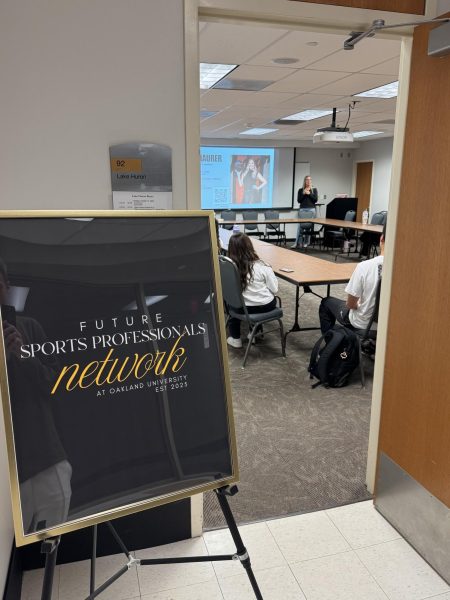Busting Food Myths with OU’s Nutrition Society
Ever wondered if diet soda is better than regular in terms of health? What about dark chocolate? Oakland University’s Nutrition Society is here to bust some of these infamous myths and provide tips on how to stay healthy for students.
According to Rachel Golaszewski, vice president of OU’s Nutrition Society, a common myth she typically hears is that carbohydrates are bad.
“Carbs are the brain’s main food source,” she said. “Getting in your healthy carbs such as whole grains, vegetables and fruits are very important for health.”
Another myth she tends to hear pertains to gluten-free foods.
“There are actual people with actual gluten intolerances,” Golaszewski said. “However, not as many people are intolerant to gluten as they think they are.”
Kyle McIntosh, president of OU’s Nutrition Society said people tend to overestimate their meal portions, which leads to overeating. Snacking and studying pretty much go hand in hand for students on campus who are always on the go, so McIntosh suggests meal prepping because it allows for portion control and always having food on hand.
“This will reduce the probability you will eat something that has low nutritional value,” he said. “Meal prepping does take time, but it helps people stick to what they want to eat.”
As for healthier food items being more expensive, both Golazewski and McIntosh agreed that it all comes down to knowing where to shop and how to do it smartly.
“Vegetables and fruit are the cheapest food on my shopping list,” Golazewski said. “I like to think of it in these terms; a family size bag of chips is about $3. About how long does a bag of chips last? They say there are about 11 servings in that bag, but I cannot remember one time that a bag of chips lasted more than five servings in my household.”
Golazewski added that $3 worth of broccoli, which amounts to three stalks, usually lasts her about seven or eight snack or meal add-ons.
“You could spend $20 a day on fast food for $140 a week, or $70 on groceries once a week,” McIntosh said. “Cucumbers are as low as 69 cents each.”
Now for the age-old question – Is diet soda really better than regular? Golazewski said the difference between regular soda and diet soda comes down to artificial sweeteners vs. sugar. Regular soda contains sugar while diet has artificial sweeteners instead.
According to the Academy of Nutrition and Dietetics, the public can consume a wide range of artificial foods safely.
“If you are specifically looking to lower the amount of sugar in your diet and you absolutely need some soda in your life, maybe try diet soda,” Golazewski said.
As for dark chocolate, she said to find the healthiest forms of dark chocolate, such as the bars of chocolate that have a percentage of cocoa on the front.
“The higher the percentage, the closer you are to eating the actual cocoa bean,” she said. “Some words of wisdom, if you are not used to the taste of rich dark chocolate, be ambitious at your own risk. Richer chocolate tends to be on the chalkier side. I’ve made that mistake before.”
For more health tips like this, Golazewski said the Health and Wellness Center in the Rec Center is a free source of knowledge and help while on campus.




